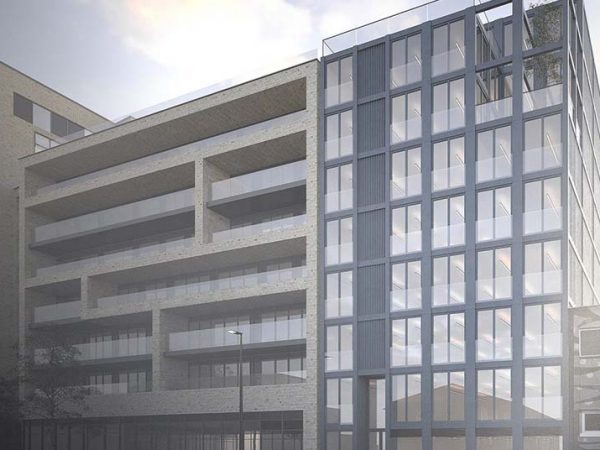
No matter what your living situation, you’re sure to have heard of container homes and their growing popularity as a housing option for many South Africans.
While it might seem like a strange idea to some, to others, the idea of living in a container home puts a much needed sparkle in the eye.
Although the thought of being anywhere new right now could be appealing thanks to the lockdown and irrespective of whether a container home appeals to you or not!
Most of us would consider buying a house or investing in property development to be a huge step, both mentally and financially.
Property experts have noted that as a result, container homes are on their way to becoming the “middle ground” many of us might seriously consider.
That said, there is still an air of mystery surrounding container homes in South Africa.
Let’s help clear up some of that mystery by taking you through a few of the basics around container homes and the reasons for their growing popularity.
What are container homes?
If the name didn’t already give it away, a container home is just that – a home created through upcycling and modifying the large steel shipping containers you see on the back of ships, trucks, and trains.
Due to their flexible and adaptable nature, many of the container home options on the market are customisable in terms of layout and design and come in different sizing options.
Why are they becoming such popular options?
There are many reasons why container homes are becoming more attractive to prospective home buyers.
One of the biggest drawcards, as mentioned earlier, is their incredible affordability in comparison to buying or building a regular brick and mortar home.
In addition, container homes often come with predictable costs as most of the hard work is done for a fixed and pre-agreed price in the factory.
According to the latest property stats, the average price a first-time homebuyer will pay sits just under R1 million.
While this figure is perhaps lower than one might have expected, it still demonstrates that buying a home is significantly more expensive than buying even one of the high-end container homes available on the market.
Depending on your design and specifications, a container home could come in at a third of the buying cost.
Similarly, the cost of building a home offers little financial competition as the outlay here is likely to be at least triple that of purchasing a container home.
Ultimately, a bespoke container home with all the bells and whistles will always work out cheaper than buying or building a traditional home.
Another popular feature of the container home is its promotion of and alignment with living a more sustainable, conscious, and minimalistic lifestyle.
Chances are if the concept of living in a container appeals to you, you’re probably either already living this way or are seriously considering making a change and cutting ties with some of the clutter and unhealthy behaviours and patterns in your life.
Furthermore, because of their size, container homes are super low maintenance and are very eco-friendly given the use of gas and solar power as well as rainwater harvesting.
That said, it is recommended that you invest in good insulation as this is a key area to assist with energy-efficiency and safety so avoid cutting costs here.
What to consider before going with a container home
If you are seriously considering exploring the option of a container home, it is recommended that you get online and do more research!
There are so many factors to take into account when going this route, but the three essentials that need to be considered are:
Location
Consider where the best and ultimate resting place will be for your container home.
Take into account how hard or soft the ground is at the site as well as whether the area is prone to mudslides or flooding.
If this is the case, a traditional cement foundation might need to be built, but it’s best to have this discussion with your contractor or engineer as they will be best placed to assess and provide the basic specifications for the preparation of your site.
Permits
It’s vital that you take the time to research and determine what local and municipal building permits and permissions might be required when buying a container home.
While some municipalities don’t require you to apply for building permissions, container homes are still required to comply with standard building regulations so be sure to check with your contractor as to what the procedure is and which plans need to be submitted and approved during the process.
Size
While there are different container sizes and configurations for you to choose from, the size can still be quite limiting especially when taken up by plumbing, HVAC, insulation, and other home-related systems you may opt for.
Most containers are long and narrow and will, to some degree, require you to think a bit more out-the-box when it comes to furnishings, décor, and appliances.
At the end of the day, if researched and executed properly, a container home could offer potential buyers both a crazy adventure and an ultimately rewarding home choice in many ways, especially if paired with an off-the-grid lifestyle.
To many, the appeal of something different couldn’t come at a better time, and thanks to the advances in techniques, materials, and expertise, a container home might very well be the dream home option you’ve been waiting for.
Big Box Containers is a leading supplier of containers in South Africa. Contact us online or call us on 0861 447 474 for a quotation or to discuss your refrigerated container rental needs.



